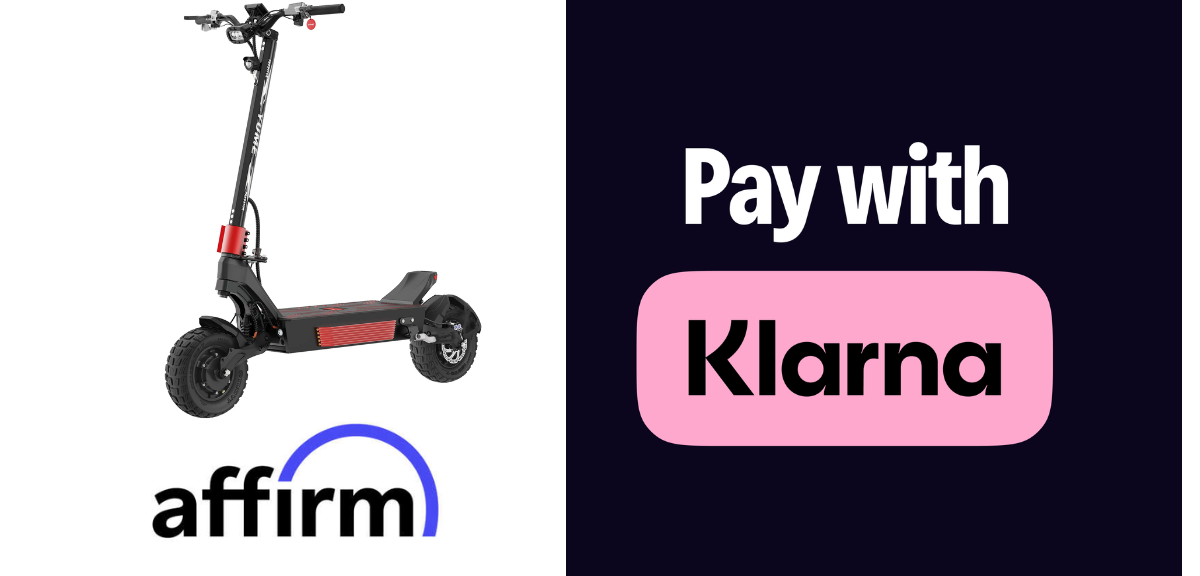Electric scooters have become more sophisticated, making them even more expensive than they were a couple of years ago.
As more enthusiasts wish to join this trend and hobby, it’s possible to want to finance a ride and get the most beefy out there.
However, I still think that financing an electric scooter isn’t the best buying option.
Reasons Why Financing An E-scooter Is A Bad Idea
High Interest Rates and Fees
One of the most significant drawbacks of financing an electric scooter is the high-interest rates often associated with these loans.
Many financing companies cater to consumers with varying credit scores, leading to interest rates that can be significantly higher than traditional vehicle loans.
Additionally, these loans may come with hidden fees, such as origination fees, late payment penalties, and early payoff penalties. These added costs can significantly increase the overall price of the scooter, making it much more expensive than if purchased outright.
Moreover, the financing terms for electric scooters are often shorter than those for other vehicles.
This means higher monthly payments, which can strain your budget if not carefully planned.
High-interest rates coupled with short repayment terms can quickly lead to financial strain, especially if you encounter unexpected expenses or changes in your financial situation.
From our research, most leading scooter financinciers such as Klarna, Katapult, and Affirm have a maximum repayment period of 3 years, which makes the monthly payments for expensive rides relatively high for many.
Uncertain Longevity and Reliability
While electric scooters are praised for their eco-friendly nature, their long-term reliability and durability are still a concern.
Many electric scooters have relatively new technology, and their components may not be as reliable or long-lasting as traditional vehicles.
Financing a scooter means committing to long-term payments, even if the scooter requires expensive repairs or maintenance.
The uncertainty surrounding the longevity of electric scooters can make financing a risky proposition.
Unlike more established modes of transportation, electric scooters are still evolving, and their components can be prone to failure.
This can lead to unexpected repair costs that can further strain your finances, especially if you’re already dealing with monthly loan payments.
Limited Use Cases and Weather Dependence
Electric scooters are best suited for specific use cases, such as short commutes and urban travel.
If your transportation needs change, you may find that an electric scooter is no longer a viable option, especially if you financed it.
Weather conditions also play a significant role in the usability of electric scooters, as they are often not suitable for rainy or snowy conditions, limiting their practicality.
Moreover, electric scooters have limited range and speed compared to other vehicles, making them less versatile for longer commutes or diverse travel needs.
If your lifestyle or transportation requirements change, you may find yourself stuck with a scooter that no longer fits your needs, along with the financial burden of continuing payments.
Limited Resale Market
The resale market for electric scooters is still developing, making it difficult to recoup your investment if you decide to sell.
Financing a scooter compounds this issue, as you’ll need to settle the remaining loan balance before selling.
Unlike cars or motorcycles, which have a robust secondary market, electric scooters may not attract as many potential buyers, particularly for older or heavily-used models.
Additionally, the rapid pace of technological advancements in the electric scooter industry means that newer models with better features are frequently released.
This can make your financed scooter less appealing to potential buyers, further limiting your resale options.
Depreciation and Value Loss
Electric scooters depreciate rapidly, much like other vehicles. When you finance a scooter, you risk being “upside down” on your loan, meaning you owe more than the scooter is worth.
This can be particularly problematic if you decide to sell or trade-in your scooter before the loan is paid off.
Unlike cars, which may retain some value over time, electric scooters often lose their value quickly due to rapid technological advancements and wear and tear.
This depreciation can leave you in a challenging financial situation if you’re still paying off a scooter that no longer meets your needs or has become obsolete due to newer models.
Alternatives to E-scooter Financing
Instead of financing an electric scooter, consider alternative options that can provide greater financial flexibility and peace of mind.
Saving up to purchase a scooter outright can eliminate the burden of monthly payments and interest charges, allowing you to own your scooter debt-free.
Additionally, many electric scooter companies offer rental or subscription services, enabling you to use a scooter without the long-term financial commitment of a loan.
If owning an electric scooter is a priority, exploring used options can be a cost-effective way to acquire one without the need for financing.
Used scooters can often be found at a fraction of the cost of new models, and purchasing one outright can save you money in the long run.
In Summary
While financing an electric scooter may seem like an attractive option, especially with the allure of easy monthly payments, it comes with potential drawbacks that can outweigh the benefits.
High interest rates, depreciation, limited resale value, and uncertain longevity are all factors to consider before committing to a loan.
By exploring alternative options and carefully evaluating your financial situation, you can make a more informed decision about whether financing an electric scooter is right for you.
